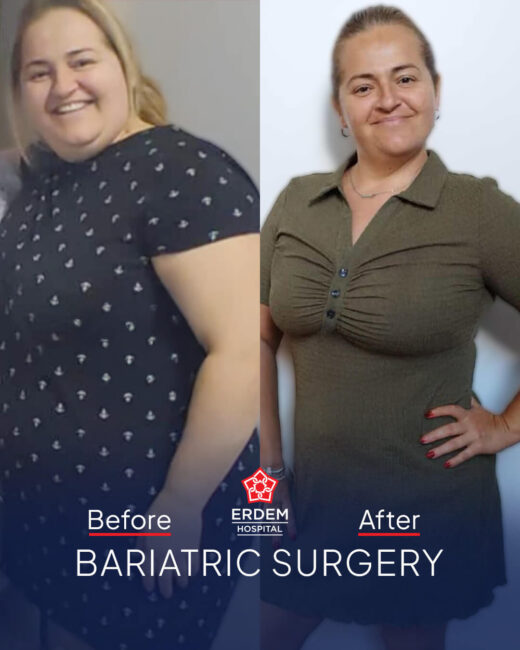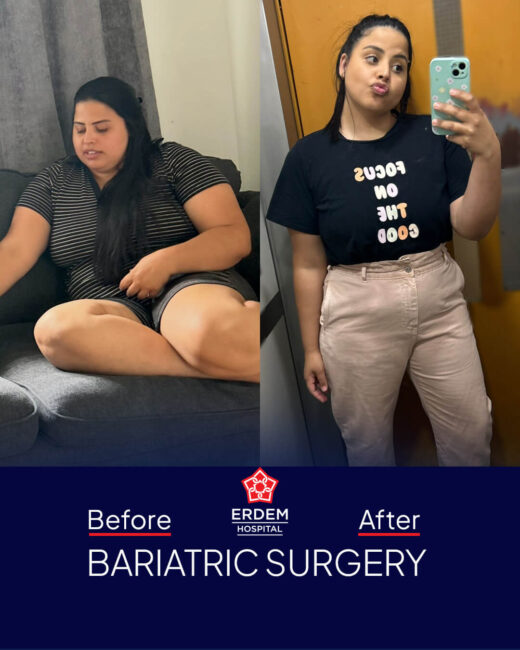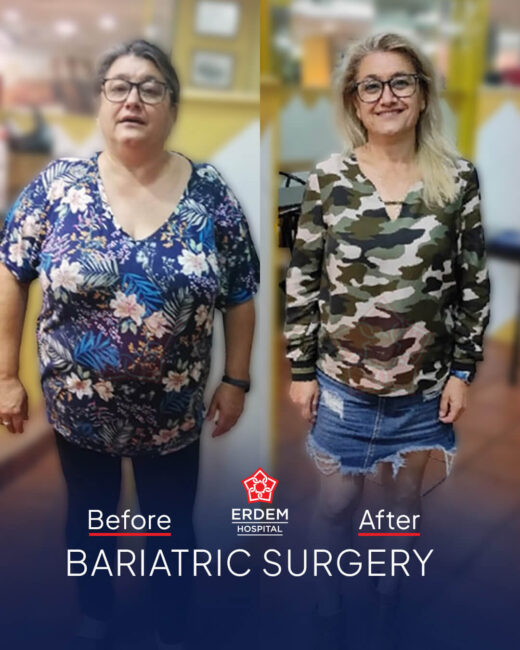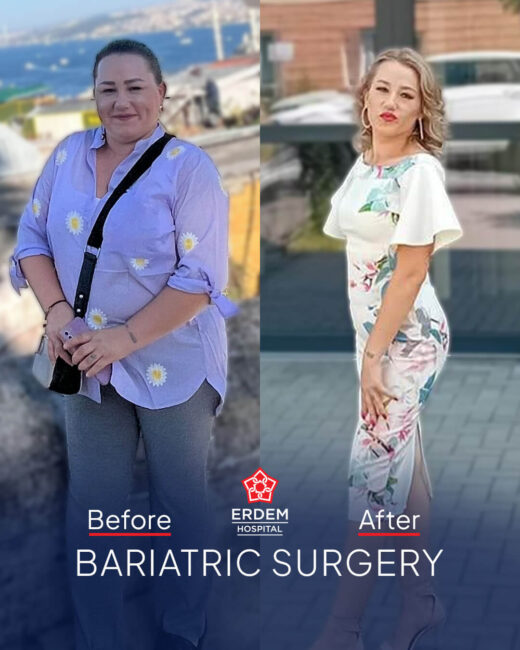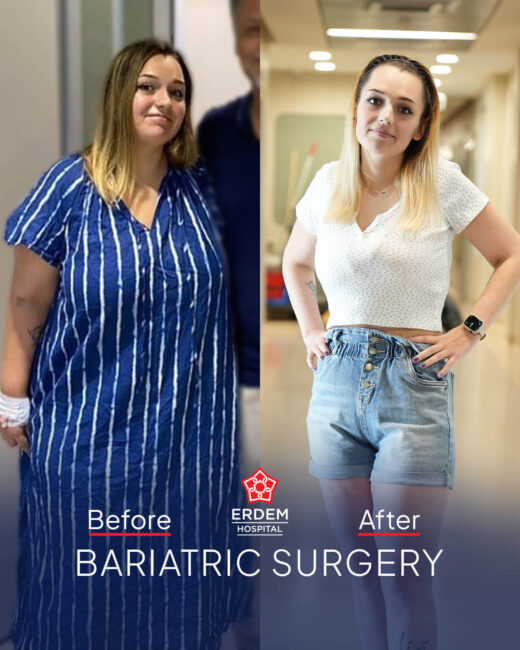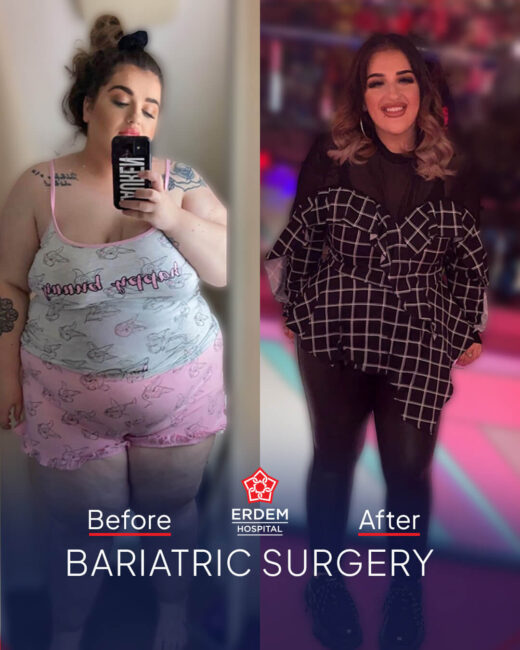Gastric sleeve surgery is a widely recognized procedure aimed at aiding weight loss and managing obesity-related health conditions. By reducing the stomach’s capacity, this surgery significantly limits food intake, making it an effective solution for individuals struggling with severe obesity.
Patients who undergo a gastric sleeve in Turkey typically experience a loss of 45% to 65% of their excess weight within two years post-surgery. This procedure also contributes to the improvement of obesity-associated health issues, including hypertension, diabetes, heart disease, liver disorders, and kidney disease.
However, the effectiveness of the surgery is not solely dependent on the procedure itself. The patient’s commitment to long-term lifestyle changes plays a crucial role in sustaining weight loss and enhancing overall quality of life.
In the UK, the cost of gastric sleeve surgery is prohibitively high, forcing many individuals to abandon the idea of undergoing the procedure. Although the NHS provides partial financial assistance, out-of-pocket expenses often remain a major obstacle.
For those considering an alternative, Turkey offers an excellent option for undergoing bariatric surgery. With highly trained medical teams and world-class healthcare facilities, Turkey has emerged as a leading destination for medical treatments, including sleeve gastrectomy. Partnering with Erdem Hospital ensures access to top-tier medical care, English-speaking healthcare professionals, and affordable treatment packages.
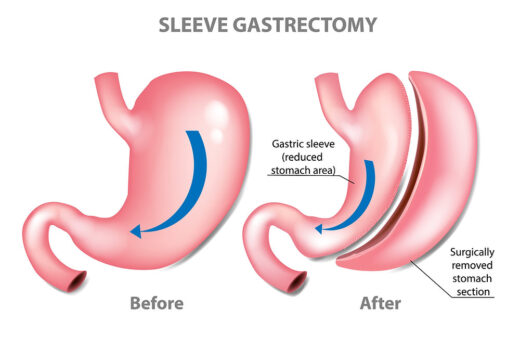
Understanding Gastric Sleeve Surgery
The gastric sleeve procedure, also known as sleeve gastrectomy, is a surgical intervention designed to promote weight loss by permanently reducing stomach size. This method, introduced approximately two decades ago, involves removing nearly 75% of the stomach, leaving a smaller, tube-like section. Due to its nature, this surgery is sometimes referred to as a “longitudinal gastrectomy” or “vertical sleeve gastrectomy.”
This irreversible procedure aids in weight management by restricting the amount of food a person can consume while also suppressing hunger by reducing ghrelin, the hormone responsible for appetite. Additionally, many patients notice changes in their gut microbiome post-surgery, which often leads to a preference for healthier food choices, such as vegetables and seafood.
The operation itself is minimally invasive, usually performed laparoscopically, requiring only small incisions instead of a large abdominal cut. This technique reduces recovery time and lowers the risk of complications such as infections and excessive scarring. However, in rare cases, a more invasive surgical approach (laparotomy) may be required.
A typical sleeve gastrectomy lasts approximately two hours, and hospital stays range from three to eight days. During the surgery, the stomach is divided vertically, with the excess portion removed and the remaining part sealed using surgical staples.
NHS Criteria for Eligibility in the UK
The criteria for weight-loss surgery eligibility under the NHS vary depending on location within the UK. Generally, patients must meet at least one of the following conditions:
- A Body Mass Index (BMI) of 40 or higher.
- A BMI between 35 and 40 with a severe health condition linked to obesity, such as type 2 diabetes or hypertension.
To qualify, individuals must have demonstrated unsuccessful attempts to lose weight through diet and physical activity. Additionally, candidates must be deemed fit enough to safely undergo general anesthesia.
Post-surgery, continuous medical supervision and commitment to lifestyle modifications are required to ensure successful long-term results.
Who Is a Good Candidate for Gastric Sleeve Surgery?
Gastric sleeve surgery is recommended for people who are significantly overweight and have struggled to lose weight through diet and exercise alone.
Most candidates have a Body Mass Index (BMI) of 35 or higher, often with obesity-related health problems such as type 2 diabetes, high blood pressure, or sleep apnea.
It may also be an option for people with a BMI between 30–35 if they have serious medical conditions linked to their weight. A full medical evaluation is necessary to determine eligibility.
This procedure is not just about losing weight — it’s about improving overall health and quality of life.
Why Do We Gain Weight? (Understanding the Causes of Obesity)
Weight gain is often caused by a combination of factors including poor eating habits, lack of physical activity, genetics, and hormonal imbalances. In today’s fast-paced lifestyle, high-calorie diets and sedentary routines are common contributors.
Emotional eating, stress, and sleep problems can also play a major role. Obesity is not just about willpower — it’s a complex health issue influenced by both biological and environmental factors.
Why Diet and Exercise Aren’t Always Enough?
For many people, traditional methods like dieting and exercising don’t lead to lasting results. The body often resists weight loss by slowing metabolism or increasing hunger hormones, making it hard to maintain progress.
In cases of severe obesity, these methods may not be enough to reverse health risks. Surgery like gastric sleeve offers a medically supported solution when lifestyle changes alone fall short.
How Is Gastric Sleeve Surgery Performed?
Gastric sleeve surgery is performed under general anesthesia using a laparoscopic (minimally invasive) technique. The surgeon makes small incisions and removes about 75–80% of the stomach.
What remains is a narrow, sleeve-shaped stomach that holds less food and reduces hunger. The procedure usually takes about 1–2 hours, and most patients stay in the hospital for one or two days.
What to Expect After Surgery?
After gastric sleeve surgery, patients usually lose weight quickly, especially in the first 6 to 12 months. You will need to follow a special diet, starting with liquids and slowly moving to solid foods.
Lifestyle changes are essential for long-term success. Regular follow-ups, vitamin supplements, and a commitment to healthier habits will help you achieve lasting results and improve your overall health.
Benefits and Risks of Gastric Sleeve Surgery
Gastric sleeve surgery can lead to significant weight loss, improved energy, and better control of health conditions like diabetes, high blood pressure, and sleep apnea. Many patients report a better quality of life and increased confidence.
As with any surgery, there are risks such as bleeding, infection, or leakage from the stomach. Long-term risks may include vitamin deficiencies if supplements are not taken. However, with proper care and follow-up, most patients recover well and experience lasting benefits.
Waiting Time for Gastric Sleeve Surgery in the UK
The waiting period for weight-loss surgery under the NHS is inconsistent, varying by location and influenced by healthcare funding and demand. Some patients receive earlier appointments if their condition is deemed life-threatening.
In general, individuals may wait several months before undergoing surgery, and in some cases, the waiting period can exceed a year. Even the initial consultation can take an extended time to schedule.
For those who require urgent medical attention or wish to avoid prolonged waiting times, seeking bariatric surgery in Turkey is a viable alternative. Not only is the process more efficient, but the costs are also significantly lower compared to private treatment in the UK.
Why Choose Turkey for Gastric Sleeve Surgery?
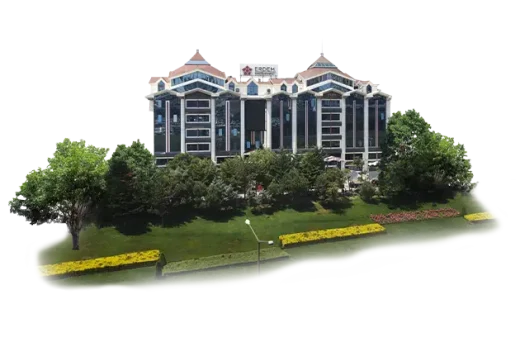
Due to financial constraints and limited insurance coverage, many individuals delay or entirely forgo gastric sleeve surgery. However, this procedure plays a crucial role in combating obesity and reducing health risks associated with excess weight.
For patients considering bariatric surgery, Turkey presents an attractive solution. Opting for sleeve gastrectomy in Turkey provides access to highly skilled surgeons, advanced medical facilities, and cost-effective treatment options. Erdem Hospital, in particular, is renowned for offering high-quality bariatric procedures performed by experienced specialists. Every surgeon at Erdem Hospital undergoes rigorous screening to ensure they meet the highest standards of expertise and patient care.
Comprehensive Support at Erdem Hospital
Erdem Hospital ensures that patients receive dedicated support before, during, and after their gastric sleeve surgery in Turkey. The hospital’s team of medical professionals prioritizes patient well-being, providing guidance on post-operative care and lifestyle adjustments.
With a strong focus on patient education, Erdem Hospital helps individuals transition into healthier lifestyles, ensuring long-term weight management success. From the initial consultation to post-surgery recovery, patients benefit from continuous support tailored to their specific needs.
FAQ’s About Gastric Sleeve
1. Is gastric sleeve surgery safe?
Yes, gastric sleeve surgery is considered safe when performed by an experienced bariatric surgeon. As with any surgery, there are risks, but serious complications are rare. Pre-operative assessments help minimize risks and ensure patient safety.
2. How long does the surgery take?
The procedure typically takes 45 minutes to 1.5 hours, depending on the individual case and the surgeon’s technique.
3. Will I be awake during the operation?
No, you will be under general anesthesia during the procedure, so you will be completely asleep and feel no pain during the surgery.
4. Can I eat normally after surgery?
Not right away. After surgery, you will follow a specific diet plan that begins with liquids, then pureed foods, and gradually progresses to solid foods. Portion sizes will be much smaller permanently.
5. How soon can I fly home?
Most patients can fly home 5 to 7 days after surgery, once cleared by the surgical team. It’s important to rest and avoid heavy physical activity during this period.
6. Is the weight loss permanent?
Gastric sleeve surgery can result in long-term weight loss, but maintaining the results depends on your lifestyle. A healthy diet, regular exercise, and long-term follow-up are key to sustaining the weight loss.
7. What is the hospital stay like?
Patients usually stay in the hospital for 2 to 3 days. During this time, medical staff monitor your recovery, manage any discomfort, and guide you through the initial stages of your post-op diet.
8. Will I need follow-up visits?
Yes, follow-up visits are important. These may be in person or virtual and help ensure proper healing, monitor your weight loss progress, and support your nutrition and lifestyle changes.
9. Are there risks of complications?
Yes, as with any surgery, there are risks. Possible complications include bleeding, infection, leakage from the stomach, or blood clots. However, these risks are relatively low, especially with proper medical care.
10. What happens to hunger after the surgery?
Most patients experience a significant reduction in hunger because part of the stomach that produces the hunger hormone (ghrelin) is removed during surgery. Appetite often decreases as a result.
11. What’s the difference between sleeve and bypass?
The gastric sleeve removes a portion of the stomach to reduce its size, while gastric bypass reroutes the digestive tract to bypass part of the stomach and intestine. Bypass generally results in slightly more weight loss but carries a higher risk of complications and nutrient deficiencies.
12. How much weight will I lose?
On average, patients lose about 60–70% of their excess weight within 12 to 18 months. Results vary depending on individual commitment to diet and exercise after surgery.
13. Will I have scars?
Yes, but they are small. Gastric sleeve surgery is typically done laparoscopically, which means only a few small incisions are made. These usually heal well and fade over time.
14. What’s the pain level after surgery?
Pain is usually mild to moderate. It can be managed with prescribed pain medication and typically improves within a few days. Most patients are up and walking the day after surgery.
15. Can I get pregnant after surgery?
Yes, but it is recommended to wait at least 12 to 18 months after surgery before becoming pregnant. This allows your body to stabilize and ensures a healthier pregnancy for both mother and baby.
